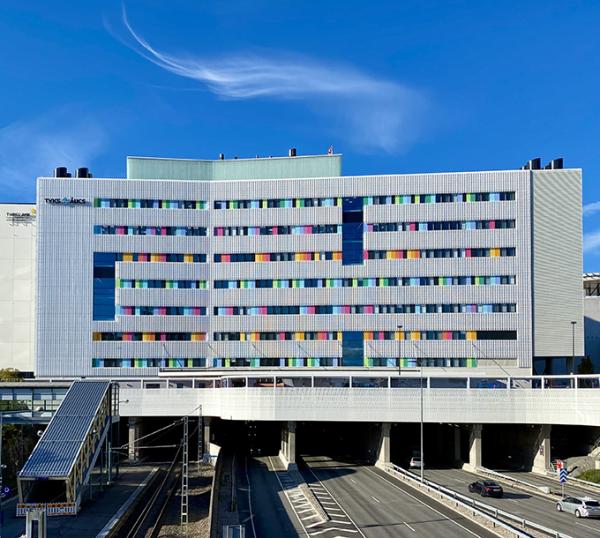Paediatric Neurology Outpatient Clinic, Lighthouse Hospital
Keywords:Opening hours and contact information
Visiting address
Postal address
Calling hours
Cancellations and transfers for the same day
Epilepsy nurse
Phone, Epilepsy nurse: 02 313 3418Consultation with neuropsychologists: number for professionals
Phone, Consultation with neuropsychologists: number for professionals: 050 407 9096At the Paediatric Neurology Outpatient Clinic in Lighthouse Hospital, we study and treat children who have been diagnosed or suspected with a neurological illness or significant developmental delay.
In a multidisciplinary outpatient clinic, we treat, for example, the following paediatric neurological problems:
- juvenile epilepsy and other seizure-like conditions
- severe headache
- aftercare of brain injuries
- sports injuries
- early development monitoring of risk children
- muscular diseases
- movement disorders.
In addition, the Lighthouse Hospital provides a comprehensive multi-professional rehabilitation outpatient clinic primarily for patients with physical disabilities, multiple disabilities, and those in need of acute rehabilitation. The Lighthouse Hospital also hosts a paediatric functional disorder outpatient clinic.
Our entire unit is also responsible for basic education in paediatric neurology for health care professionals and further vocational education. In addition, our tasks include diverse teaching, research and development in the field of paediatric neurology.
Patients come to us with a doctor's referral.
We are a part of result group for gynaecology and paediatrics in the Paediatric Neurology service area.
To improve and develop our work, we welcome feedback on care.
Examination period
The child's development and special related features are assessed in a multi-professional working group. The rehabilitation examination involves mapping the child's overall situation by their own carer, a physician, and a rehabilitation advisor. In addition, special professionals experienced in various aspects of development, such as a speech therapist, psychologist, occupational therapist and physiotherapist, evaluate the child's development skills and ability to function. At the end of the examination period, a discussion event is held together with the family to gather views on the child's need for rehabilitation.
The rehabilitation plan includes the measures needed by the child to support his development, such as recommendations for therapy, assistive devices, and social rehabilitation. The rehabilitation plan is valid for one to three years as agreed. The rehabilitation of the child is reassessed during follow-up visits arranged in, for instance, the Paediatric Neurology Unit of Turku University Hospital, the health centre in the child’s own municipality, or a child health clinic in the special care district.
Hospitals
Tyks Lighthouse hospital
In the Lighthouse hospital we have paediatric and adolescent medicine, gynaecology and obstetrics, ear, nose and throat diseases and oral and maxillofacial diseases. You can also find some of the medical imaging functions in the Lighthouse hospital.
